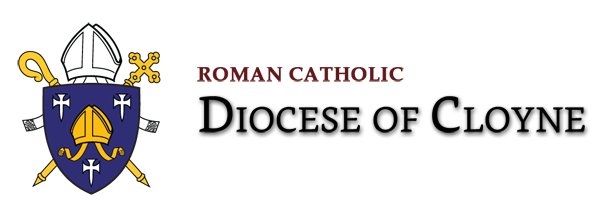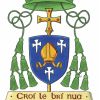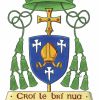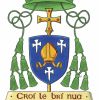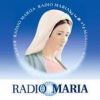The Diocese of Cloyne hosted a Day of Reflection on the topic of Catholic Primary Education in Ireland (Silver Springs Hotel, Cork, 12th March 2016). In attendance were representatives of the Board of Managements of the primary schools under the bishop’s patronage in the Diocese of Cloyne. The event was chaired by Mr Dan Leo, Diocesan Secretary for Primary Education, and presentations were made by:
- Fr Michael Drumm (Chair of the Catholic Schools Partnership; priest of the diocese of Elphin)
- Bishop William Crean
- Fr Sean Corkery (Diocese of Cloyne Adviser for Religious Education)
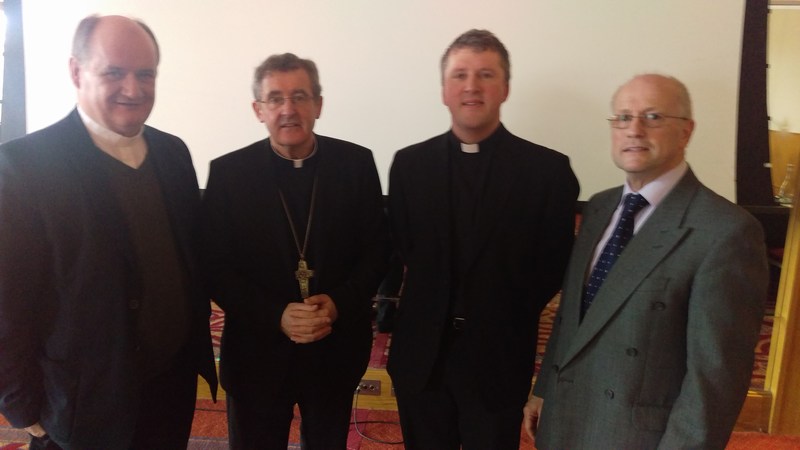
Day of Reflection on the topic of Catholic Primary Education , Silver Springs Hotel, Cork, Mar 12th 2016. Left to Right: Fr Michael Drumm, Bishop William Crean, Fr Sean Corkery, Mr Dan Leo.
Giving an insightful account of the distinctive nature of Irish Catholic primary education in general, Fr Drumm spoke of the high density of primary schools in Ireland; our country has a far higher number of primary schools, per capita and per square mile, than the average country. Another distinctive feature of our primary schools is the high quantity (and academic ability) of teacher training graduates.
Speaking specifically of Catholic primary education he praised the vision offered by Catholic Education and its “whole-person”, “non-reductive”, approach: “The reality in our schools is that children need to be led from ignorance to knowledge, from despair to hope, from fear to faith, and all with a belief in the future. That is what is real and that is what will continue [in Catholic Education]. Catholic Education, he said, “is not a burden; rather, it is a resource, an inspiration, a narrative for our young people to finding meaning in.”
Alluding to a potential new curriculum called Education about Religions and Beliefs (ERB) and Ethics, in development by the National Council for Curriculum and Assessment (see this link), Fr Drumm encouraged his audience not to be dismayed by some media representations of potential changes to Irish primary education. He said, “The real task of education is something deeper, something far more important than any media debate. Let’s continue to do that as best we can in our own schools.”
Bishop Crean called attendees to “fashion a new leadership team in your own schools.” He suggested that the spirituality required for effective Catholic school leadership is something worth contemplating. “It is that sense of one’s own spiritual development,” he said, “whereby you give expression to that vision, a vision doesn’t exist out there in the clouds, but is incarnate; it is concretised in your particular work as a principal or as a chairperson of the Board of Management. And so, while you work with young people in your respective roles, there’s also a sense in which you too are being educated in and through what you do. The effectiveness of our work will be in and through the kind of person that we are… The person that the young person encounters is the one who will be the concrete way in which the young person will get examples of virtue, patience, nobility, the appreciation of beauty, and of all that is good and true. These words: ‘whatever is true, whatever is honourable, whatever is just, whatever is pure, whatever is pleasing, whatever is commendable’ are found in St Paul’s letter to the Philippians; they are not so much religious words but they are integral to all that is best in the human person.”
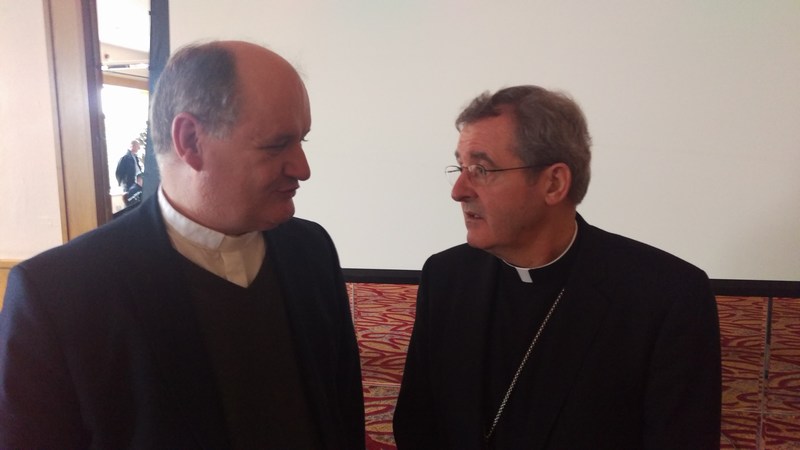
Fr Michael Drumm speaking with Bishop William Crean at the Day of Reflection on Catholic Primary School Education (Cork, Mar 12th, 2016).
Fr Sean Corkery provided the audience with Ten Principles for the Effective Teaching of Catholic Religious Education in Primary Schools
- Jesus Christ is at the heart of all activity in a Catholic School.
- All staff, students, parents and members of the Board of Management fully support and understand Religious Education as the foundation subject of the entire educational process in the Catholic School.
- Religious Education is taught with the same systematic demand and rigour as all other areas of the primary school curriculum.
- The school understands itself to be one element of a catechetical community that also includes the home and parish.
- Attention is given to both the educational and the faith formation dimension of Catholic Religious Education.
- There is an awareness of the Catholic school as an open, hospitable and inclusive community bearing witness to an attitude of respect and appreciation of other faith beliefs or other stances for living while educating in the distinctive beliefs, values and practices of the Catholic community.
- The Liturgy of the Church is an essential element of Catholic Religious Education.
- The Word of God and Prayer are integral to Catholic Religious Education.
- All members of the school community are challenged to live the Gospel in their daily lives.
- All members of the school community are offered the opportunity to grow in their awareness of social and ecological justice, universal solidarity and responsibility and are encouraged to put their developing faith into action.
Practical Implications for Implementing these Principles
- Religious Education is timetabled for 2 hours and thirty minutes weekly at all levels in our school
- A Religious Education Policy based on the learning and faith formation outcomes outlined in the Preschool and Primary Religious Education Curriculum in Ireland is in place in our school
- A system for weekly or monthly schemes of work in Religious Education has been agreed in our school
- A link is made with home in Religious Education once a week at every level
- Religious Education is taught at every level using a programme approved by the Irish Bishopís Conference or by the appropriate diocesan authority
- The school and its teachers support parents/guardians and their parishes in the Christian initiation of children and not the other way round. SGN, 102
- Consideration is given to appropriate means of assessment in Religious Education
- There is a Prayer Space in every classroom and in the public space/s in our school
- Our Prayer Space reflects the movement of the Liturgical Year
- Prayer is an integral part of our school day
- Key moments in the life of our school are marked with a liturgical celebration
- Sacramental preparation will take place in partnership with the appropriate parish and home based catechesis
- Members of staff are provided with opportunities for CPD in Religious Education at regular intervals
- Opportunities for on-going faith and spiritual development of the teacher are provided by the Board of Management
- All members of staff and all students are encouraged to witness to Gospel values in the way in which they interact with each other and with the lived environment
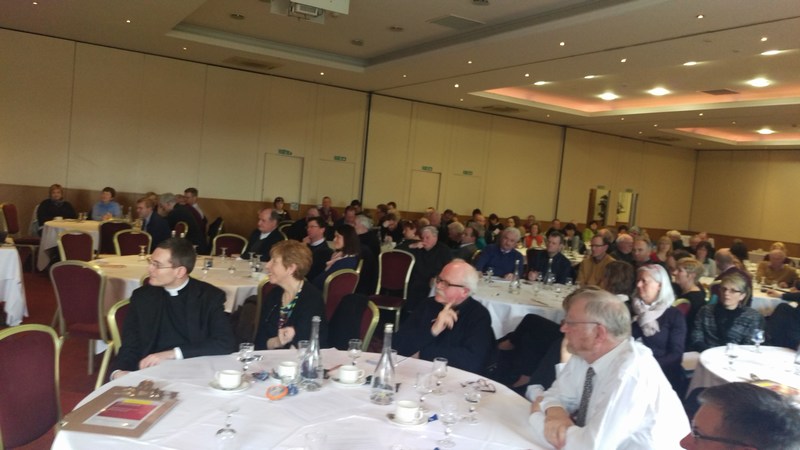
School Principals and Board of Management members in attendance at the Diocese of Cloyne Day of Reflection on Primary School Education. (Mar 12th 2016, Cork).
